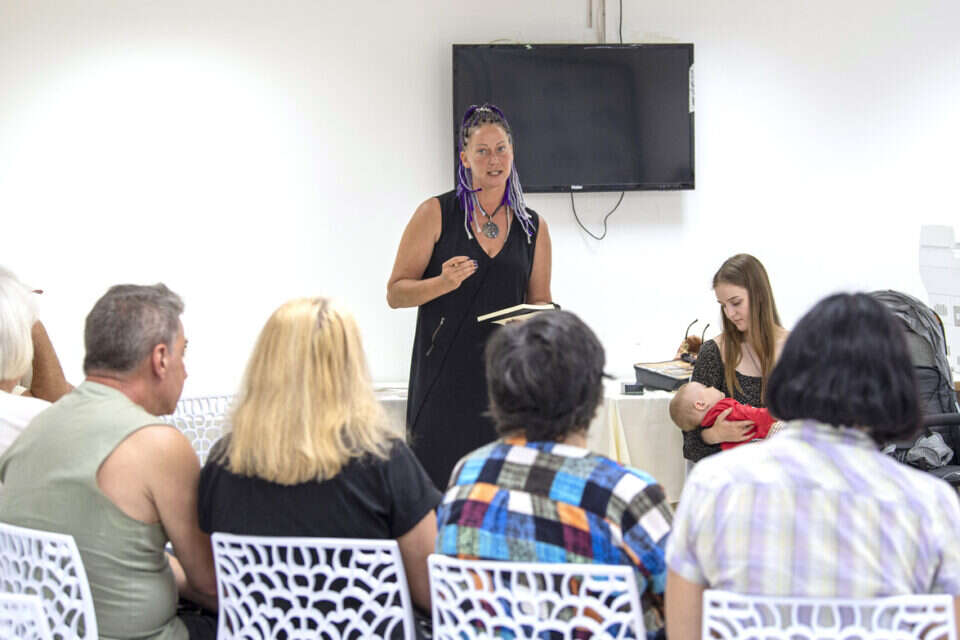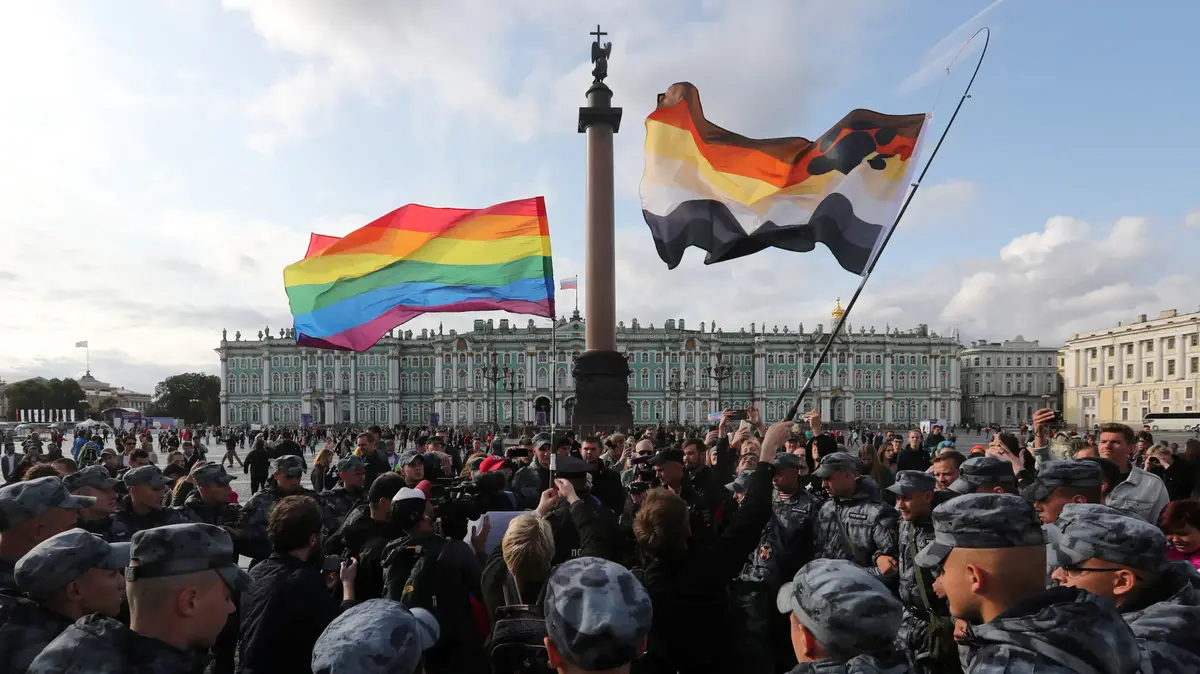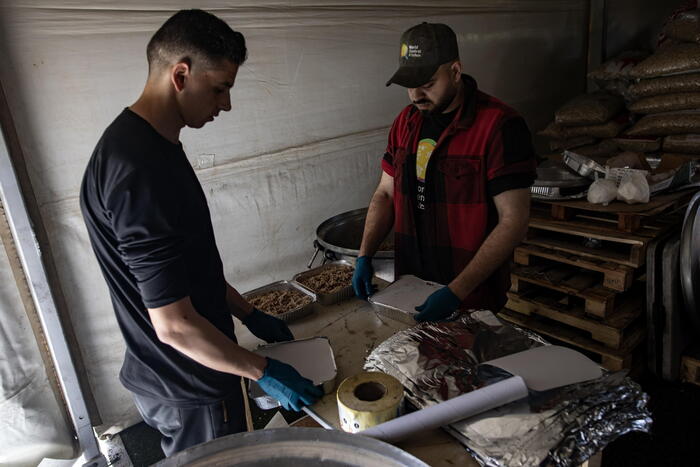Since the beginning of the war between Russia and Ukraine, almost 27,000 new immigrants have come to Israel in Operation Immigrants.
In recent weeks, the number of immigrants has decreased, and in the hotels rented by the Ministry of Immigration and Absorption, there are 500 immigrants.
Many of them came from the most difficult battle areas, and they tell heartbreaking stories of what they have experienced there lately.
The Club Hotel in Tiberias is currently home to a group of about 40 new immigrants who came from Mariupol - the city that was largely destroyed.
We met them and heard from them the descriptions of the inferno they experienced.
They told of the corpses in the streets, of the prolonged siege, of life without electricity and gas and of hunger.
They all talked about the fear of a family member being forced to leave behind, about destroyed living enterprises and the undermining of the sense of security.
The Ministry of Aliyah and Absorption understood the plight of the immigrants, and Minister Pnina Temano Sheta stood up for them, through the Resources Association - a center that helps deal with crises - an open telephone line of help center with psychologists and support workshops for emotion processing, delivered by trauma psychologists.
Workshop activities.
"Here we feel safe," Photo: Efrat Forscher
The workshops take place in the hotels where the new immigrants are staying, during which the psychologists talk and encourage them to talk and share the difficulties they experienced, the fears and anxieties.
In a workshop held last week, the new immigrants who arrived just a few days earlier told about the fluctuations in mood, anxiety about the future, longing for loved ones and home they left behind and the feeling common to all who came from there - guilt, surviving and being in a safe place, and some family members No.
"The neighbors rescued me"
They sit in a circle and slowly open up.
Among the participants - a barely 20-year-old woman holding a baby.
In an attempt to reassure her restless son she tells about herself and that she came here alone, while her partner is forced to stay in Mariupol.
She rarely gives details, and explains that she mainly cares about her son's father.
Another woman bursts into tears as she begins to recount her experiences, and all participants wipe tears from their eyes when they hear her.
Svetlana with her son Yuri.
She left her husband and mother behind, Photo: Gil Eliyahu Gini
Another participant is Svetlana, and next to her in a wheelchair sits her son Yuri (36).
Oleg, Yuri's twin, is also at the hotel.
Svetlana says that it was only because of Yuri's condition that Oleg was allowed to cross the border, but for 40 years she had to leave her husband behind.
Her mother stayed with him.
She tells of the longing for her mother and her partner, and of the fear she felt when the war broke out and did not know if she would be able to protect her disabled son.
"When the booms started, I knew I had to lie down on the floor, but I immediately thought: How will I keep Yuri? How will I run with him in a wheelchair? I found myself hugging him tightly in my arms. That's all I could do," she says in tears.
Rima, 74, recounts the day she was nearly killed when a violent explosion shook the building where she lived in the harbor area.
"We heard a huge noise, the windows shattered and smoke filled the house. I thought I was in hell."
Rima.
Do not communicate with the rest of the world, Photo: Gil-Eliyahu-Gini
Her neighbors rescued her from the rubble of her apartment.
She will never forget what she saw, and in tears she says: "I found out that half of the building had collapsed. Many of my neighbors were killed, including my best friend."
"We lit fires to keep warm"
Rima lived for more than a month and a half with the other neighbors who survived the bombing in a small shelter, where they were not even allowed to lie down and communicate with the rest of the world, until she was rescued by the rabbi of Mariupol and arrived in Israel.
"To this day I do not know where my daughter is," she says in tears.
Maria and Dimitri, who arrived in Israel in early June, also describe a very difficult reality.
They tell of the tanks in the streets, of the shooting, of people killed before their eyes.
"In March, massive fire began. All the glass in the house shattered. We were left without electricity, without heating and without gas. It was very cold, minus ten degrees, and to keep warm we lit a common fire in the yard for all the neighbors to heat water for coffee and tea," they say. "Killed on the street in front of our eyes. The bodies remained in the streets for days."
After their house was destroyed they hid for another two weeks in the basement of a school, until they realized that if they stayed in Mariupol they would die.
"We decided we wanted to live. We left with a group of about 150 people, we walked for a day and a half, because the bridges were bombed and it was not possible to move in vehicles."
For about three weeks they stayed in a town near the border with Russia, then crossed the border and boarded a flight to Israel.
"In Mariupol we were afraid of death, here we feel safe," they say.
The psychologist who leads the workshop is Meira Suzanov, who has been in charge of rehabilitation at treatment centers in Ukraine for ten years, and specializes in the rehabilitation of children injured in combat.
She explains: "The workshops deal with the processing of experiences from the fighting and absorption in Israel. I do this through dubbing, a method that reduces symptoms of stress, and helps deal with past events."
In the workshop she scatters in a card room.
“It’s a method of helping people who have a hard time describing their feelings tell the story in creative ways,” she says.
"It's great for working with kids."
Pnina Tamano Sheta, Photo: Photo by Oren Ben Hakon
Minister of Immigration and Absorption, Pnina Temano Sheta: "The new immigrants who have just been rescued from the war zones need psychological assistance to help them overcome their difficult experiences.
As part of the broad envelope we provide them, the Ministry of Immigration and Absorption, in collaboration with the Resources Association, provides psychological assistance by language-speaking psychologists and through trauma processing workshops with expert psychologists and psychotherapists.
I sincerely hope that these help the immigrants, if only slightly, to recover from the difficult experiences so that they can adapt optimally in Israel. "
Were we wrong?
Fixed!
If you found an error in the article, we'll be happy for you to share it with us






/cloudfront-eu-central-1.images.arcpublishing.com/prisa/UIOA5AS4ZFAODDSJGFPWLJ7WZE.jpg)


